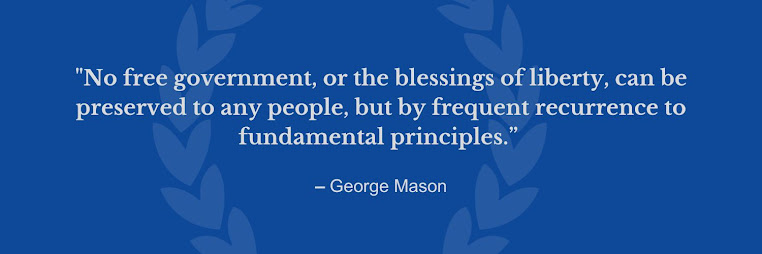The clock keeps ticking on FCC reform. It has now been over eight years since then-FCC Chairman William Kennard released a draft strategic plan titled, “A New FCC for the 21st Century.” The plan stated that in five years, “[t]he FCC as we know it today will be very different in both structure and mission.”
For the most part, the predicted change in structure and mission hasn’t happened yet. But in light of the competitive marketplace and rapid technological developments that have occurred since 1999, reducing the need for traditional forms of regulation, certainly changes in structure and mission ought to be implemented. In my view, the FCC probably should not go the way, say, of the now defunct Interstate Commerce Commission and Civil Aeronautics Board. But the agency should undergo institutional reform if it is to be transformed into a regulatory entity in which its structure and practices match its 21st century mission.
Yesterday, I had the good fortune to moderate a panel sponsored by the ABA’s Section of Administrative Law and Regulatory Practice. The panelists were John Duffy, Professor of Law at George Washington University; Sam Feder, now a partner in Jenner & Block’s Washington office and the FCC’s immediate past General Counsel; Andy Schwartzman, President and CEO, Media Access Project; and Joe Waz, Senior Vice President of External Affairs and Public Policy Counsel, Comcast. Perhaps not surprisingly, with the experience and expertise represented by this group, what ensued was an extremely thoughtful, informative, and wide-ranging discussion. I commend to you the excellent reports of the event in yesterday’s TR Daily and Multichannel News, and today’s Communications Daily and BNA Daily Report for Executives. [Subscriptions required].
A lot of ideas were put on the table, some of which would require congressional action, others of which are more modest, in the nature of process reforms, which could be accomplished by the agency itself. I want to offer some selected observations from the panelists that I think are worth noting, at least in the interest of provoking discussion (again, while urging you, if possible, to look at the more complete press reports until the transcript becomes available.)
John Duffy suggested that the way the FCC operates today bears little resemblance to the theoretical and aspirational vision expressed by its congressional creators. Rather than an “independent” institution in which decisions are made by true experts insulated from politics, much of the agency’s policymaking is and always has been political in nature. John proposed splitting the FCC’s policymaking and adjudicatory functions, with the policymaking function moved to the Executive Branch under a single administrator, where the president ultimately would be politically accountable for the policy decisions. The adjudicatory function would remain with a multimember agency resembling the current agency.
Next was Joe Waz. Joe offered suggestions for what he called more immediate moderate reforms that would make the FCC operate in a more transparent fashion. The suggestions include making rulemakings more focused so that they are about adopting specific rules and not wide-ranging inquiries; restricting the ex parte process so that the actual comment period would once again be meaningful; subjecting some draft agency reports to peer review and public comment before being acted on by the Commission; releasing a semiannual agenda that lists what actions the agency anticipates taking during the next six months; notifying the public of agenda items three weeks in advance of agency meetings; and adhering to a “shot clock” to ensure that agency decisions are made on a timely basis, especially in merger proceedings.
Following Joe, Andy Schwartzman looked up from his always ubiquitous crossword puzzle to ask: “Does anybody know a three-letter word for an agency that does as well as anybody could do in a difficult job?” His answer: “The FCC.” Despite this, Andy agreed with much of what Joe Waz suggested regarding process changes, especially changing the way the current ex parte process works. He suggested the FCC needs to require more detailed summaries of meetings in order to make the process more transparent. While agreeing with Joe’s notion of a shot clock to bring Commission proceedings to close in a timely fashion, he would exempt merger proceedings from the requirement. He would also require that the Commission issue the texts of decisions reached at open meetings within 10 days. Finally, rather than moving towards a single administrator for policymaking, Andy would reverse the decision made in 1982 to reduce the Commission from seven to five commissioners.
Sam Feder completed the initial presentations. He said that before coming to the agency, he believed many of its orders were incoherent. Once he got there, he said, he began to understand why this is so, with the compromises necessitated by five commissioners with differing views. Sam volunteered that John Duffy’s idea of putting the agency under the control of a single administrator made a lot of sense. While stating that the FCC was doing a good job operating under the current law, Sam stated there is a need for a new law to provide more congressional guidance in light of changed circumstances.
There was more, and a lot of intelligent back-and-forth discussion among the panelists and the audience. But the above will give you a good sense of the session’s tenor and some of the specific suggestions advanced for modest and not-so-modest institutional reforms.
The issues raised in thinking about reforming the FCC go way beyond the actions of any particular chairman or commissioner, past or present, or any political party. Indeed, they are independent of such. The focus should be on matching the institutional structure and practices to the agency’s mission going forward in a competitive environment that already is much changed from the one envisioned even in 1999.
The panel deserves much credit for advancing the discussion.
Friday, April 04, 2008
The Clock Keeps Ticking on FCC Reform
Labels:
FCC Institutional Reform




